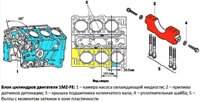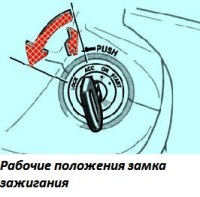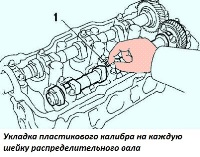Adjusting the parking brake actuator
To check the correct adjustment of the parking brake drive, press the parking brake pedal all the way - you should hear about 7-8 clicks of the ratchet device
On a car with a manual transmission, when the lever is raised all the way - 7-9 clicks should be heard
If the number of clicks does not fit into this interval or the car does not hold the parking brake, you need to adjust the drive
The parking brake adjustment unit for vehicles with automatic transmission is located on the parking brake pedal, for vehicles with a manual transmission it is located on the parking brake lever.
Adjustment requires a 12 wrench, flat blade screwdriver
Remove the car from the parking brake
Hang out the rear wheels and place the rear of the car on supports
Remove the rear wheel
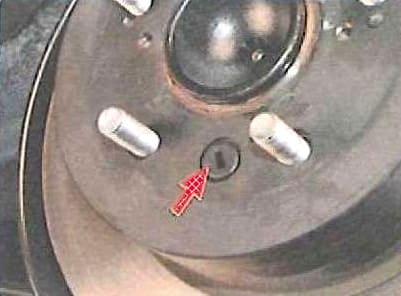
Prying off with a screwdriver, remove the plug from the adjusting hole in the brake disc
We fix the brake disc on the hub by screwing two wheel nuts onto the studs
Turn the brake disc in such a position that the adjusting hole is at the bottom
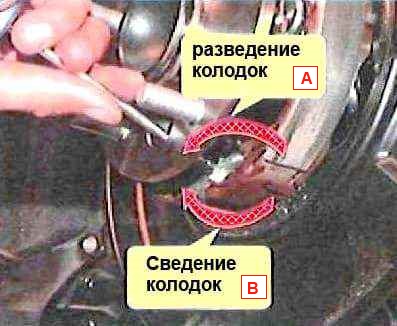
Through the adjusting hole, we spread the pads until they come into contact with the inner working surface of the disc (the moment of contact is determined by the difficult rotation of the disc by hand), turning the adjusting device with a screwdriver by the ring gear in the direction shown in the photo (for clarity, the brake disc is removed)
Turn the adjusting device in the opposite direction until the brake disc is released
Install the plug of the adjustment hole
Installing the removed wheel
In the same way, we adjust the parking brake mechanism of the second rear wheel
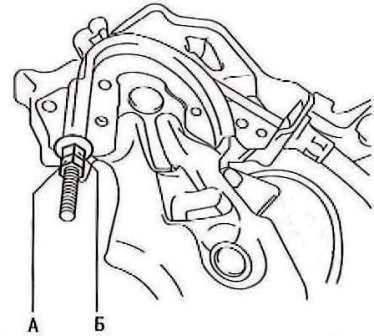
Loosen the locknut "A" (fig. 3) of the parking brake cable
Turning the adjusting nut "B" clockwise, screw it onto the threaded tip of the front cable until a well-perceptible resistance of the wheels appears
Unscrew the adjusting nut "B" until the rear wheels are completely released and tighten the locknut "A"
We check the correctness of the adjustment by pressing the parking brake pedal all the way and counting the clicks of the ratchet
If the number of clicks is less than 7 or more than 10, turn the adjusting nut "A" in the right direction until the required number of clicks is obtained
When reducing the number of clicks, you need to check the ease of rotation of the rear wheels in order to prevent them from being braked by the parking brake mechanisms
Check
We put the car on the wheels, brake with the parking brake, set the gear selector to the neutral position and try to manually roll the car.
If this was done, the drive is not adjusted correctly or there is wear on the brake parts
Replacing parking brake pads
Parking brake pads do not normally wear out.
But if the driver accidentally does not fully release the parking brake when starting off, the pads will overheat and fail.
In this case, they will need to be replaced.
Remove the wheel from the side of the pads to be replaced
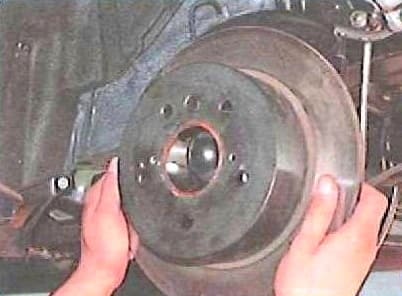
Remove the brake disc
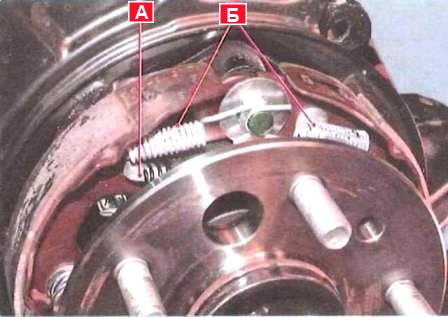
Remove the upper coupling springs "B" of the front and rear pads
Spread the upper ends of the pads and remove the spacer bar "A" with the spacer spring installed on it
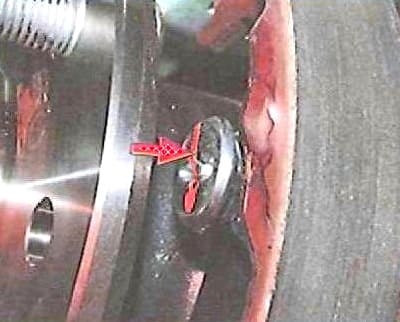
Press on the cups of the brake pads and turn them 90 °, remove both cups and the pressure springs installed under them
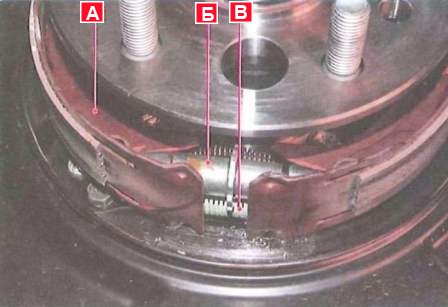
We remove the adjusting device "B", the lower coupling spring "C" installed under it and the front block "A"
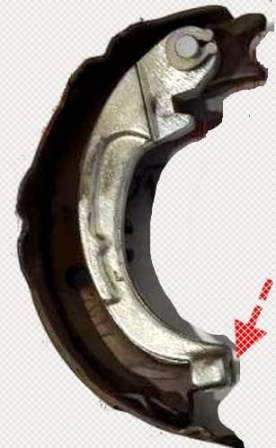
Remove the rear shoe by releasing the parking brake cable from the fork of its expansion lever (shown by the arrow)
Install the pads in reverse order
Install the brake disc and adjust the parking brake drive as described above









